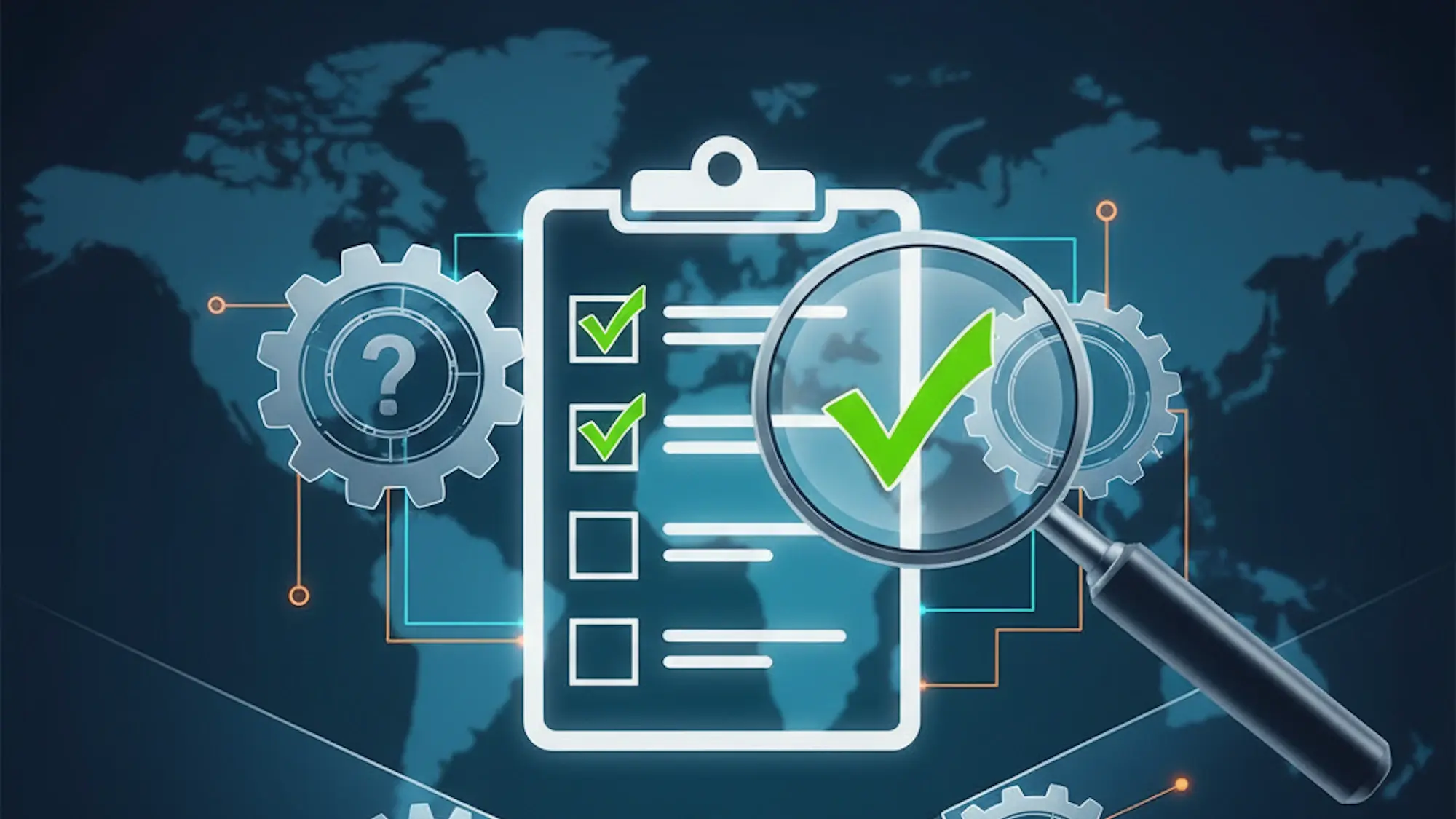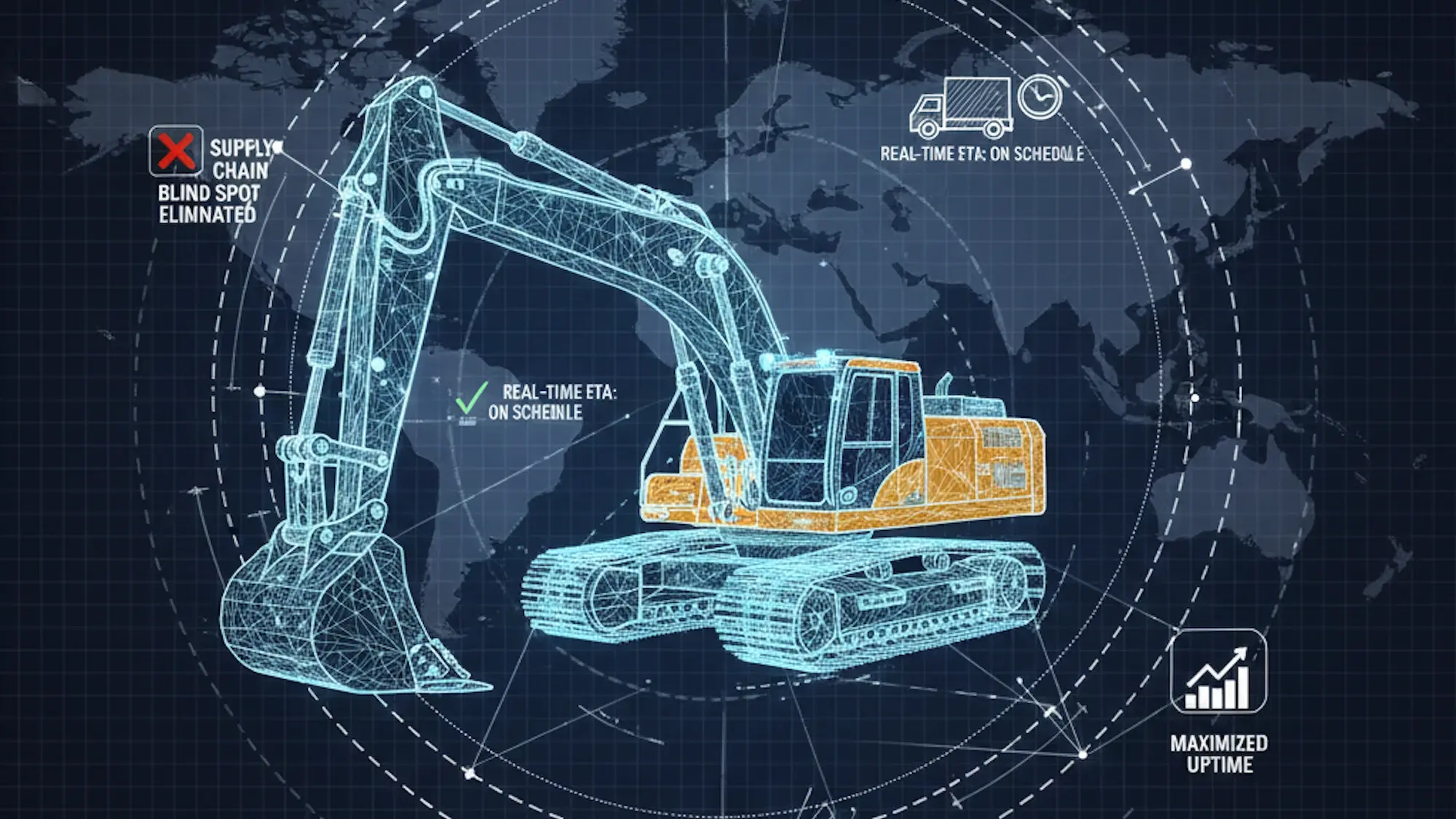
The clock never stops, and in critical operations, neither can your equipment. For operations managers and equipment owners, a single point of failure in the supply chain isn't just an inconvenience; it's a direct hit to the bottom line. Need a statistic? Unplanned downtime can cost industrial manufacturers over $50 billion annually, with some sectors incurring losses of more than $2 million per hour.
That number isn't a theory; it's reality.
You already know you need a partner who can handle the big, the urgent, and the impossible—a specialist in Specialized Freight Management (SFM). You've moved past asking, "What is Specialized Freight Management?" Now, the only question that matters is:
How do I choose the right one?
This is the Decision Stage. It's time for due diligence in choosing your logistics partner. Forget the glossy brochures. The real answers lie in the questions you ask. We've compiled the ten most crucial questions that move the conversation beyond a simple quote to building a genuine partnership.
1. Beyond the Price Quote: The Foundation of Reliability
It's easy to focus on the dollar amount on the quote, but for critical freight, the cheapest option is almost always the most expensive mistake. Your focus must be on total cost predictability and service reliability, not just a low initial bid.
Question 1: What does your "guarantee" of service truly entail, and how do you back it up?
A guarantee isn't a promise; it's a process. You need to know what happens when things go sideways. Does their guarantee involve tangible, measurable accountability? In specialized logistics, reliability isn't a feature—it's the bare minimum. You're evaluating the partner's entire operational efficiency and integrity.
Question 2: How do you establish true cost predictability and minimize financial surprises?
Surprises on a bill are never good, especially when they stem from poor planning. Unforeseen border fees, unexpected permits, or last-minute equipment changes can shatter your budget. Your partner should be a master of logistics due diligence. They must anticipate all auxiliary charges, from escort fees to specific heavy-haul logistics permit costs, giving you a precise, final figure upfront. This level of foresight enables you to avoid the hidden costs that can derail projects.
2. The 24/7 Question: Visibility and Communication Protocols
In the world of uptime logistics, a shipment is only as good as your visibility into it. When your equipment is on the move for a scheduled maintenance turnaround, you can't wait for an email the next morning. You need answers now.
Question 3: What is your standard for real-time tracking, and how is that data integrated into my operations?
It's not enough to be told a truck has GPS. You should know that your specialized freight management provider offers truly real-time tracking, which you can access 24/7. More importantly, how is that location data turned into actionable intelligence? Does the data feed into a system that allows your team to prepare for arrival, or is it just a dot on a map? You should expect constant access, not a daily check-in.
Question 4: Will I have a dedicated point of contact, or will my critical shipment be managed by a call-center rotation?
For complex moves, you cannot afford to explain the nuances of a complex, multi-modal solution to a new person every time you call. Demand a single, dedicated point of contact—a specialist who understands your specific industry, your equipment, and the stakes of your project. This relationship is crucial for maintaining effective 24/7 logistics and facilitating proactive communication.
Question 5: How are critical issues communicated outside of standard business hours?
Because critical freight rarely moves during bankers' hours, their communication protocol must be non-stop. If a delay occurs—say, a weather-related closure or an unexpected breakdown—how quickly are you notified, and by what means? Their answer should reflect an immediate, multi-channel response system, not a voicemail box.
3. Specialized Expertise: Handling the Intricate and Oversized
This is where actual SFM expertise shines. Anyone can move a standard pallet; very few can successfully transport a 100-ton piece of equipment across state lines or international borders.
Question 6: Do you have proven, specific experience in my industry (e.g., Mining, Energy, Construction)?
A partner with deep industry expertise knows the unique vocabulary, regulatory hurdles, and project cycles of your field. For example, a specialist in freight management for critical infrastructure understands the specific permitting required for a new energy turbine versus a piece of heavy construction machinery. Their expertise minimizes errors and speeds up the entire process.
Question 7: What are your multi-modal and specialized equipment handling capabilities (rigging, permits, escorts)?
The right provider doesn't just manage the trucking portion; they manage the move. This involves complete control over specialized rigging, load securement, and managing the various logistical layers. You need a partner who can confidently manage the heavy haul logistics of a complex project, connecting rail, sea, and road without dropping the ball—or the equipment.
Question 8: How do you manage global complexities, customs, and compliance for international moves?
If your equipment needs to cross a border, customs compliance is non-negotiable. Ask about their global network and their ability to navigate complex import/export documentation and tariff codes. A logistical hiccup at a border can quickly turn a two-day delay into a two-week stoppage, showcasing why this capability is essential for preserving uptime.
4. Handling the Unexpected: Contingency and Full-Lifecycle Support
The best logistics plan is one that recognizes reality: things will inevitably go wrong. The measure of an excellent partner is not whether problems occur, but how they are responded to.
Question 9: What is your documented emergency protocol for unexpected delays?
A robust partner has a detailed contingency planning framework. Ask for specific scenarios. What happens if a key truck breaks down? How do they mitigate the effects of port congestion or extreme weather delays? A strong risk management plan ensures they can deploy backup capacity, secure urgent replacement parts, or pivot to alternative routes before you even feel the impact.
Question 10: Can you manage full-lifecycle logistics, including scheduled maintenance turnaround and reverse logistics?
For high-value equipment, the journey doesn't end at installation. A truly strategic partner handles the equipment's whole operational life. This includes managing reverse logistics for damaged components or coordinating the entire scheduled maintenance turnaround process, ensuring equipment is pulled off-site, repaired, and redeployed on a tight timeline.
Moving from Checklist to Partnership
Selecting a specialized freight management partner is one of the most critical strategic operations decisions you'll make. The answers to these ten questions move your evaluation from a transaction based on price to a long-term partnership based on trust, expertise, and a shared commitment to your operational uptime.
When you're ready to evaluate a partner using this framework, look for an organization built from the ground up to answer these tricky questions—not just adequately, but perfectly. An ideal partner understands that their service isn't about moving freight; it's about minimizing risk and maximizing your operational efficiency.
This commitment to maximizing uptime, delivering accurate cost predictability, transparent 24/7 logistics, and deep heavy haul expertise across critical industries is the exact foundation upon which Customodal is built. We understand the decision you face, and we're here to answer any questions you may have.





